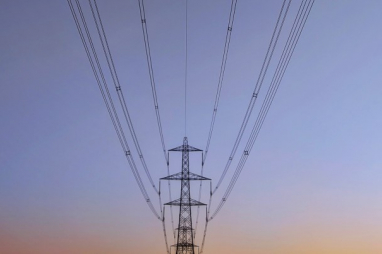- Мужские россовки adidas decade hi b - Украина #28353944 , adidas Originals Vit t-shirt i boyfriend-modell med stor logga - ball оригинал кожа — цена 2900 грн в каталоге Кроссовки ✓ Купить мужские вещи по доступной цене на Шафе
- what to wear with the air jordan 1 mid se coconut milk particle grey - hamburger - ui
- Nike Air Max 90/1 "University Red" Release Info - Nike Air Max 96 2 Women's Shoes White - StclaircomoShops
- air jordan 5 island green releasing in november (2023) , SBD , air jordan 5 island green releasing in november
- Chaussures, sacs et vêtements
- air jordan spring 2021 retro collection release date info
- new air jordan 1 high og osb dian blue chill white cd0463 401
- best nike basketball shoes
- Air Jordan 1 Paisley Bandana Release Date
- Air Jordan 3 Rust Pink CK9246 600
- Home
- News and analysis
- Info hubs
- Events
- Video
- Case Studies
- About us
- Magazine
- Advertising
Produced for the industry by the Association for Consultancy and Engineering
News
Energy reforms essential – Infrastructure Commission publishes first report

The UK must reform the way it sources, stores and distributes energy if electricity black outs are to be avoided in future, the National Infrastructure Commission (NIC) has reported. In its first report since being set up to advise government on the UK's infrastructure needs, the NIC has said the UK must make better use of electricity storage technology and secure better connections with other countries' supply networks. Government must also reform energy regulation to allow suppliers of household demand flexibility technology to compete with generators in the capacity market, the NIC says in its report, Smart Power.
Energy demand is expected to outstrip supply by 2030 at current rates of growth in consumption as ageing fossil fuelled power plants close at a faster rate than new sources of electricity come online. Sufficient reforms of electricity storage, interconnection and demand flexibility would secure the UK's energy needs by 2030, save consumers up to £8 billion a year and help the UK meet its 2050 carbon reduction targets, the NIC says.
The findings of the Smart Power report have been welcomed by Aecom's UK director of power and industrial consents, Dr Richard Lowe. Greater use of storage and demand flexibility will help balance the energy supply network, he says. However he warns that over reliance on connection to other networks could still lead to supply risks unless there is adequate redundancy in the system for when the interconnectors are unavailable.
"The measures highlighted in the report need to be considered alongside a mix of new generation assets to compensate for the forthcoming closures of existing generation assets, such as coal-fired power stations," Lowe said.
Earlier this week Energy Secretary Amber Rudd announced that a series of reforms to the Capacity Market was being brought forward a year to address concerns that insufficient energy supply was being secured to keep consumer prices under control while meeting future demand. The reforms include plans to buy more capacity earlier and to put stricter regulations in place to force suppliers to stick to the terms of their Capacity Market contracts.
The UK has a pressing short term need to build more power stations, the NIC says, as two thirds of the existing stock of coal, gas and nuclear plants are due to close before 2030. Building of new and more diverse sources has to be matched with a balance of supply, otherwise the UK faces blackouts, according to the Smart Power report.
More interconnection for importing energy from other networks is recommended for greater resilience. Storage technology is cited as essential for responding to spikes in demand and has become more viable as costs have come down – from $3000/kWh to less than $200/kWh since 1990. Storage is also attractive because it will not require subsidies for attracting investors. For promoting more household use of demand flexibility systems, NIC calls for an immediate review of regulations by Ofgem and more action by government to inform the public on the technology's benefits and piloting business models with consumers.





